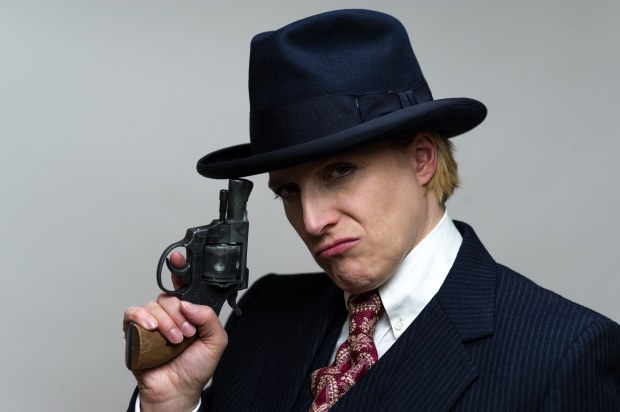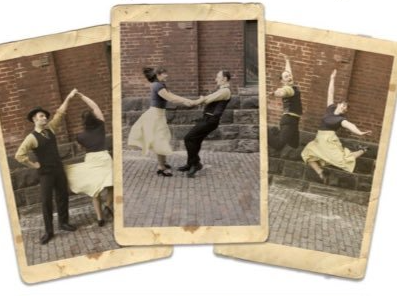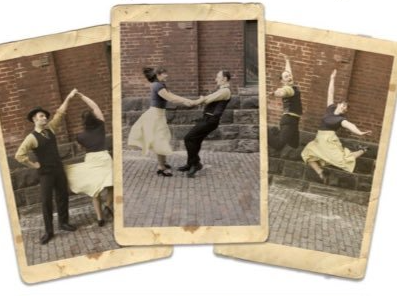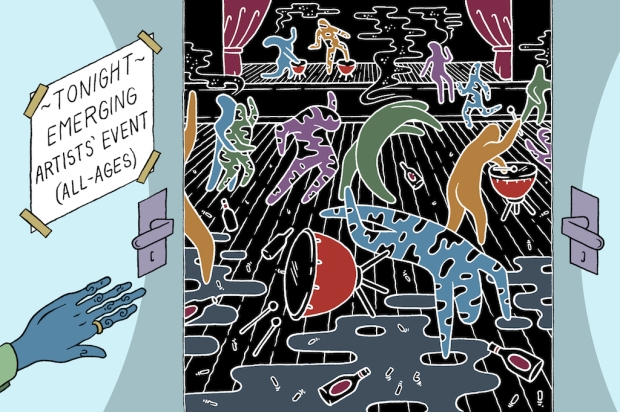by Kasey Dunn, http://www.brickandmortartoronto.com
I could have been one of the four women who came forward from Soulpepper to call for an end to the abuse in their workplace. I could have been one of them, being grilled about why I kept accepting jobs. Trying to explain that I had no other option, and couldn’t say anything. Those four women represent many.
I went to theatre school at George Brown, right across the hall from Soulpepper. I met many of the actors named in these articles. I met Albert Schultz. I remember him telling us that he was the most important man in Canadian theatre, and that we should take every opportunity to get to know him. I heard all the rumours; we used to whisper about them in the lobby. “What are you willing to do to get the job?”
As Kristin Booth alluded to, actors are groomed to believe abuse is normal. That grooming begins in theatre school.
How to Start a Cult
Fear and guilt are central. A fearful person is one who cannot think critically, allowing the leadership to maintain control.
We lived in a constant state of fear. You could be cut at any point if the faculty decided you were not talented enough. We were told that this would make us better. We came to accept and even celebrate it, hoping for our friends to be culled to make the herd leaner, stronger, better, leaving more roles for us.
When I was in second year, I was simultaneously a lead in two plays, and was stage manager for a third. It would all be presented as part of a 6 play performance. After the dress rehearsal, I was taping the props table as the director gave notes. He asked me if I played the ukulele.
No I didn’t.
Could I learn before tomorrow?
No. I couldn’t.
“Come on, anyone can play a ukulele. Even a monkey could do it,” came a voice from my peers.
I began to cry. I was exhausted, I was sick, I was overwhelmed. I was trying to track props and remember all my lines for the 10 hour long production, afraid that I was a bad actor, and ready to be kicked out. No, I could not learn the ukulelele over night. Sorry.
I got a poor mark on my report card. “Too thin-skinned” said my notes.
Isolation – Cults cut off members from the world. There is no free time to think or analyze. Members may be deprived of adequate sustenance and/or sleep.
We were in school from 9am-10pm, 6 days a week. At times, the days were even longer than that. We were hungry, tired, and sick. We weren’t allowed to take sick days, so we would be at school with bronchitis, touching each other and sharing small spaces. Our breaks were minimal, sometimes as short as 20 minutes for lunch. I went to the administration once, to ask if we could please have a longer lunch. I was instructed not to complain. Many before me had done it. Was I not going to be able to cut it?
You cannot legally pay people to work the hours we worked, or to be treated the way we were. Yet we paid them for the chance to be there, and feared we might be asked to leave.
When they thought we were getting too chubby they introduced mandatory 8am cardio classes.
Induced Dependency and Elitist Mentality – The group is all that is good. As part of cult tactics, members are made to feel special. Cults demand absolute, unquestioning devotion, loyalty and submission.
We were told that George Brown is the best school, with the best instructors, and the best reputation. You are lucky to be here. Be thankful. Thousands auditioned, and you were chosen – so make the most of this opportunity. Our teachers were above reproach. Their demands were to be met without question. There was no one we could go to when we felt something was wrong. The structure of the school was a hierarchy of fear.
If you ask a question about a note you are given, you are labelled “defensive, hard to work with.” The correct response is silence, and to simply do it.
We had one teacher who would repeatedly show up unprepared for class, and we were falling behind on our dialect and accent work. Our directors were constantly telling us that our accents were an embarrassment. When we told the administration that we were falling behind, our concerns were brushed aside. Tired of this, I purchased a book with CD’s to help myself learn the accents I needed, and introduced my classmates to the book. When the administration found out, I was called to the office on lunch (which I missed) and reprimanded for reading a book that I didn’t have permission to read, for undermining the instructor by reading it, and for ring-leading this “revolution.” I was told not to read the book again.
The ends justify the means. Because the leaders are doing very important things members are led to believe that their behaviours are justified.
I remember our acting instructor appealing to us for pity once, after a particularly hard class. “Imagine what I go through,” he said. “I wade through the trenches year after year with these terrible young actors. Trying to make them better. It’s hard. Imagine watching this garbage!”
I remember feeling bad for him, for how hard his job was – this man who had just told me that he had a hard time thinking of me as a woman, or imagining men being attracted to me – because he was doing god’s work.
This same man who told my best friend that she seemed like “one of those kids who was caged in the basement for years.”
Who told me that I belonged on the 4th floor somewhere, filling out forms from 9-5.
Who I watched degrade classmate after classmate, for being too gay, too prudish, too inexperienced (are you still a virgin?) too stupid, too smart, too tall, too unattractive. There were no boundaries. After all, we were making better actors here – and actors have to be open and ready for anything.
The member may be pressured to publicly confess sins, after which he is viciously ridiculed by the group for being evil and unworthy.
The worst sessions were the acting classes when you would stand in front of the class while the instructor picked and prodded to find your psychological weaknesses. They would comment on your age, height, weight, style, musical taste, and personality trying to find the key to unlock you and break you. Did your parents beat you? Were you the “fat kid”? Were you made fun of? We would admit to our worst secrets, which would consequently be used to explain to the class why we were bad actors.
They say acting school is about breaking you down so that they can build you back up. First of all, what kind of garbage is that, and what the fuck is it even supposed to mean? But secondly, I must have missed the ‘building up’ half, because I graduated believing that I was “too tall, and awkward about it,” “Over the hill (let’s face it you’re no spring chicken),” “weak and thin-skinned,” while also “too hard to work with and defiant.”
Dread – Once complete dependence is established, the member must retain the leader’s good favor or else his life falls apart.
Dread is the definition of my life for those 3 years. I woke up in the morning dreading going to school. I would cry. I dreaded evaluations. I dreaded one-on-one meetings where extremely personal and inappropriate things were said that you would be pushed to laugh about over beers with classmates later. I also dreaded being kicked out. End of career. Only those who were successful would ever be true artists.
I could have been one of those four brave women, but I don’t know that I ever would have found the courage to speak up. I don’t know that it would have crossed my mind as an option. I don’t know that I would have been able to realize anything was wrong with the picture, because Albert Schultz would just have been the next person in a long line of people who had held my career in their hands and told me that I should live in fear while thanking them.
Maybe I was lucky. I didn’t get a great job at Soulpepper fresh out of school. I was slogging it in audition rooms, with agents and casting directors, classes and headshots. I had a lot of time and failure that allowed me to realize that there were some pretty big sacrifices that I wasn’t willing to make. I started my own theatre spaces with a belief and a dream that there was another way to tell stories that would let you be your own boss, and not at the mercy of someone in an extreme power imbalance. I found my partner, Vikki, who was also on a hunt for a different solution – and together we built our company Brick and Mortar. Read her story here.
Together we are trying to change the conversation, and help other artists break themselves out of the cult. Brick and Mortar will not be a part of accepting what we have been taught or allowing it in our spaces. We do not want anyone experiencing that dread when coming into our studios. We have begun developing a zero tolerance policy within our spaces and a support network where female identifying people can feel safe to report abuse. If you’d like to participate or hear more, there is a form at the bottom of this article.
Thank you to Diana Bentley, Patricia Fagan, Kristin Booth, and Hannah Miller.
How to start a cult sources:
https://people.howstuffworks.com/cult4.htm
http://www.decision-making-confidence.com/cult-tactics.html



 ⭐⭐⭐⭐⭐ – CBC
⭐⭐⭐⭐⭐ – CBC






